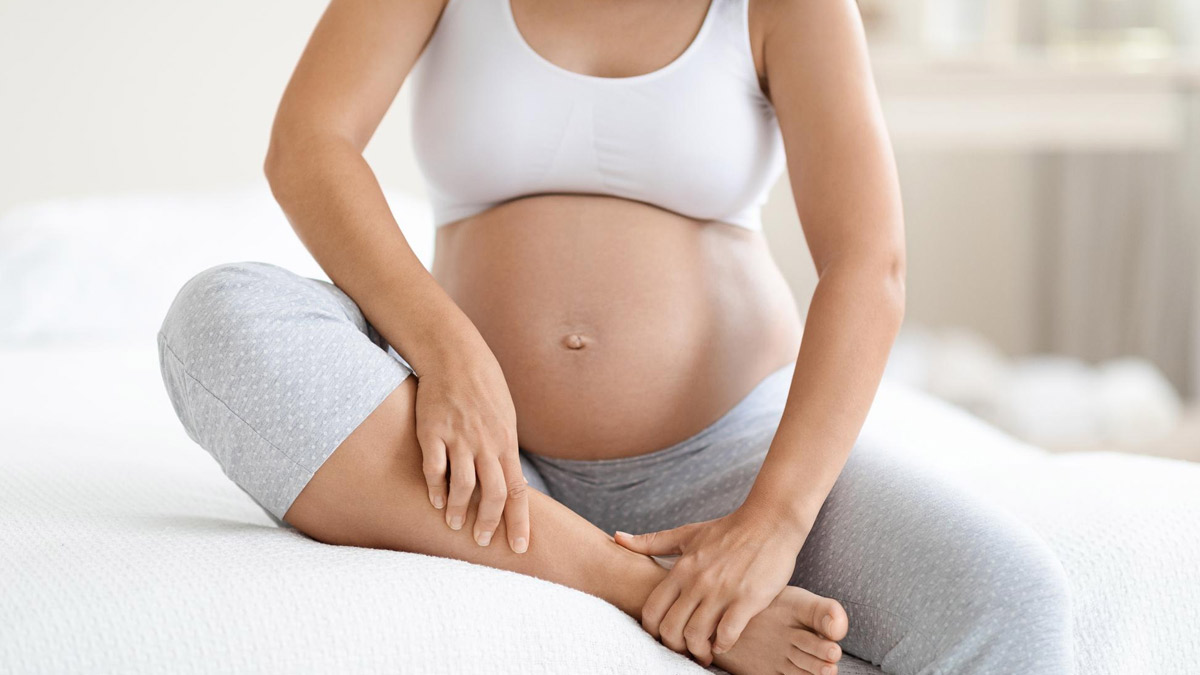
Back and foot pain are common complaints during pregnancy. Progression of symptoms is noticed more prominently in the third trimester as the centre of gravity of the woman's body is altered due to weight gain. Pain gets worsened while walking and climbing the stairs. We spoke to Dr. Varini N, Senior Consultant- Obstetrician & Gynaecologist at Milann Fertility & Birthing Hospital, Bangalore, to know how this pain can be managed and relieved to ease discomfort in pregnant women.
Table of Content:-
Tips to manage foot pain/ plantar fasciitis
Rest: Get plenty of rest by avoiding any activities that worsen the pain or cause a great impact on feet like running. It is suggested to raise the legs at least six inches above the heart for 15 minutes in order to improve blood flow.
Hot/ cold fomentation: Ice packs or hot water bags can be kept on foot daily for about 20 minutes three to four times.
Exercises: Some simple calf and Plantar Fascia (feet) stretch three to five times daily will elongate the heel cord since Plantar Fasciitis is caused by tight muscles in the feet.
Also Read: 5 Exercises To Cure Heel Pain Due To Plantar Fasciitis
Proper support and cushions: Shoes and slippers that offer arch support and efficient cushioning should be worn. This will prevent tiny tears in tissue cells caused by the pressure felt on the heels. Heel pads also provide cushioning.

Splinting: Night splint to hinder the Plantar Fascia from shortening while sleeping can be used, which can effectively stop the pain.
Medication: Inflammation in plantar fascia can be relieved by using anti-inflammatory drugs. Pregnant women can discuss the problem with their obstetrician and use these medicines as advised.
Local treatment with steroids: In case of severe pain, Orthopaedic surgeons may suggest injection of steroid to the heels. Steroids also act as anti-inflammatory agents.
Physiotherapy: Extracorporeal shock wave treatment to try and stimulate the healing process of the damaged tissues. ECWT does not involve a surgical incision and is often tried before considering surgery.
Also Read: Perform These Yoga Asanas To Cure Heel Pain
Surgical treatment: Surgery should be considered if after six months persistent non-surgical treatment fails and pain is restricting daily activities. The two surgeries that can be done are:

- Gastrocnemius recession surgery is done to lengthen the calf muscles and increase the ankle’s motion. It is, therefore, appropriate only if there is trouble moving the feet despite months of doing calf stretches. It can be performed with an open incision or an endoscope.
- Plantar Fascia release is where the Plantar Fascia ligament is partially cut to ease tension and remove any large bone spurs if noticed. It is recommended if there is normal ankle flexibility but continued pain.
Plantar Fasciitis can continue after childbirth in some women. So, the doctor advises to take care of feet and proper treatment is required as it does not subside on its own. You need to exercise all the aforesaid measures after delivery also to prevent recurrence of this condition.
Image credits- freepik
Also watch this video
How we keep this article up to date:
We work with experts and keep a close eye on the latest in health and wellness. Whenever there is a new research or helpful information, we update our articles with accurate and useful advice.
Current Version